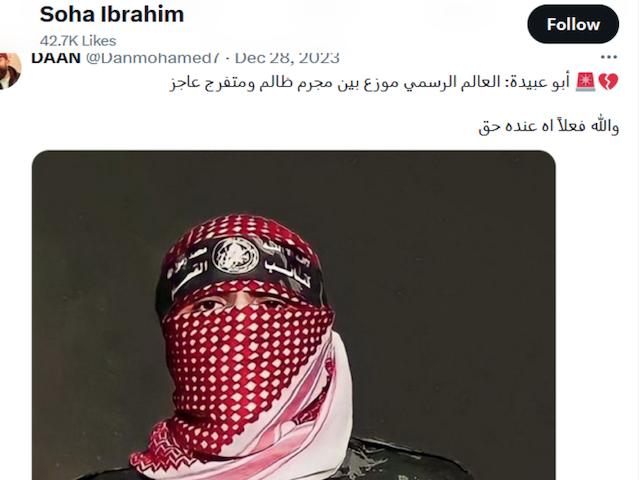The BBC has found itself amidst another controversy over impartiality following a report that implicated Israeli soldiers in allegations of mistreatment against medics at a Gaza hospital. This report, which drew global criticism and prompted a call from Foreign Secretary Lord Cameron for "answers," is now overshadowed by revelations about the social media activities of the journalists involved. The exposé that uncovered the latest scandal to befall the BBC, was conducted by Britain's The Daily Mail on Sunday.
Soha Ibrahim and Marie-Jose Al Azzi, two BBC Arabic reporters credited with the story, have displayed apparent biases in their online engagements. Ibrahim has shown support for actions and events celebrating or associated with Hamas, a group recognized as a terrorist organization by many countries, including actions celebrating terror attacks and anti-Israel sentiments. For instance, she expressed admiration for a video showing the defacement of a portrayal of Arthur Balfour, a key figure in the establishment of a national home for the Jewish people in Palestine. Furthermore, on the day of the Hamas attacks on October 7, Ibrahim "liked" and shared content that seemed to revel in the violence, including posts commemorating a perpetrator of an attack that killed Israelis.
The first is Soha Ibrahim. Her social media accounts are full of anti-Israel venom. On X she even liked posts that celebrated Oct 7 and support Hamas.
— David Collier (@mishtal) March 17, 2024
This woman is not a random bystander. She WORKS for the BBC. pic.twitter.com/HV4ShAcKk8
Al Azzi, based in Lebanon, has previously referred to Israel as a "terrorist apartheid state" in a now-deleted 2018 post, showcasing a clear stance on the Israel-Palestine conflict. The involvement of freelance photojournalist Muath Al Khatib, who has partaken in anti-Jewish rhetoric, further complicates the BBC's commitment to impartial reporting. Khatib's past comments on encountering more Jews than locals while vacationing in Thailand highlight the pervasive issue of personal biases influencing professional reporting.
The third was a Palestinian, Muath Al Khatib. His timeline is also no different from an anti-Israel activist - and in 2016 he even got triggered by the number of Jewish people he saw in Thailand pic.twitter.com/lHf9pio0Ev
— David Collier (@mishtal) March 17, 2024
This situation has sparked accusations against the BBC of harboring an institutional bias against Israel. Jewish Tory MP Andrew Percy has criticized the organization for employing reporters with apparent hostility towards Israel and, by extension, potentially towards Jewish individuals. Percy's comments also caution against hasty reactions to reports without a thorough understanding of the facts and the individuals reporting them.
These developments have reignited debates over the BBC's portrayal of Hamas and its reporting accuracy, especially regarding the conflict's events. The broadcaster's initial reluctance to label Hamas as terrorists and misreporting of an attack on a Gaza hospital have contributed to these criticisms. Previous investigations into BBC Arabic staff for justifying violence against Israeli civilians on social media, with some returning to reporting duties, further underline the challenges the BBC faces in maintaining objectivity and impartiality.
The Daily Mail: The two BBC journalists who false reported on the claims that IDF soldiers beat medical staff at a hospital in the Gaza Strip liked the celebrations after the Simchat Torah massacre. Psychopaths! pic.twitter.com/LdoQNeWo3c
— Rat Bastard (@RRespawned) March 17, 2024
As the BBC pledges to take social media guideline breaches seriously, the integrity of news reporting on the Israel-Palestine conflict remains under scrutiny. The allegations of bias and the potential impact on public perception underscore the importance of rigorous editorial standards and unbiased reporting in shaping informed and balanced views on such complex international issues.


